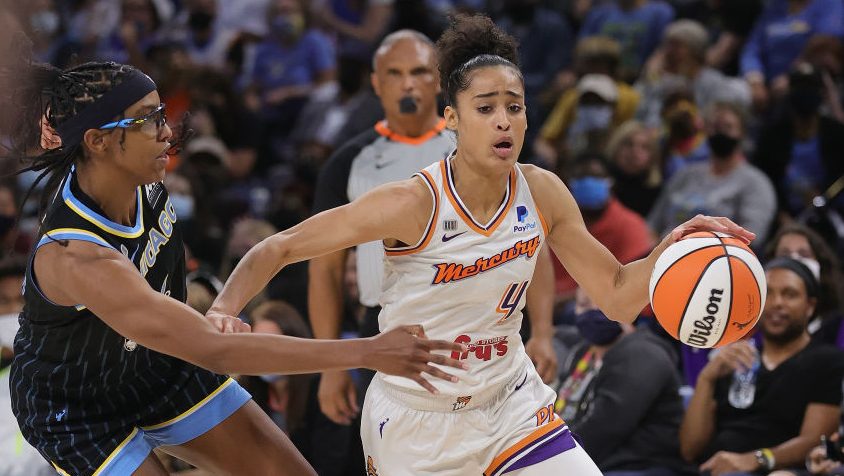Since its debut, the WNBA has ignited debate and action both on and off the court. It reflects a wider theme: equality.
WNBA players are daughters, sisters, pioneers and trendsetters – as well as leaders, activists and advocates for social change – thus making their voices count in shaping our world today.
1. It’s an Opportunity to Be Recognized
Today, women from all backgrounds can find a home in the WNBA. According to FiveThirtyEight, rosters now contain the highest ever number of international-born players since 1997 when the league began. This globalization is no coincidence; Commissioner Cathy Engelbert and other leaders of the league have long prioritized diversity and inclusion as key ingredients of success both on and off the court.
As one example, the WNBA’s Social Justice Advisory Council — comprising prominent activists like Beverly Bond of Black Girls Rock and Black Lives Matter co-founder Alicia Garza — strives to foster ongoing dialogue about race, voting rights, gender equality, LGBTQ+ advocacy, gun reform and other topics pertaining to these areas of social justice. Furthermore, stars in the league use their platforms to raise awareness for these causes; CBA struck in 2020 committed pregnancy benefits for players who typically must hide their pregnancies out of fear of losing endorsements or contracts; seeing these issues raised as global initiatives provides recognition and support.
2. It’s a Chance to Learn
Each year, 36 players hear their name called in what can often be seen as the fulfillment of lifelong ambitions – yet many find out too late that this opportunity won’t last very long.
As is common among WNBA players, players often spend their offseason competing overseas leagues due to injuries, family obligations (such as Courtney Vandersloot graduating college in Chicago Sky), or national team commitments- especially nonUS players.
Financially speaking, prioritization may also be essential, since starting salaries in the WNBA start at $50k while those for Euroleague players begin at double that amount. Even with this extra income it can still be hard to meet expenses; and with prioritization being implemented as part of WNBA CBA beginning this season players must carefully weigh their priorities when prioritizing between playing in one league versus the other.
3. It’s a Chance to Inspire
As they take to the court, these women represent more than just sports; they act as ambassadors of equality and role models for young girls, boys and anyone watching them compete for WNBA free picks.
That is why WNBA players have used their platforms to voice issues important to them. At a time when activism is flourishing in every aspect of society, athletes’ voices are more critical than ever.
These women use their platforms to make an impactful difference in our world – whether that means marching for their communities, calling out racism and profiling practices or advocating for those with special needs.
The WNBA is working towards ensuring its players can make a living from their careers, with a new Collective Bargaining Agreement (CBA) that prioritizes player salaries over marketing and promotional revenue. Furthermore, players will need to arrive for training camp on time (unless national team commitments or other life events prevent this), or else arrive late.
4. It’s a Chance to Build Community
Many WNBA players began their basketball journey as young girls when women’s sports weren’t as widely acknowledged, serving as role models and encouraging future generations to follow their passions.
The Women’s National Basketball Association season is short and doesn’t follow traditional college and pro schedules, leading to speculation as to why this professional sports league doesn’t expand or play during summer like other professional leagues do.
Despite these challenges, the WNBA and its players have taken significant steps toward equality and women’s rights in sport. For example, recently the players’ union reached an agreement to reimburse pregnant players for medical expenses incurred during gestation.
The Women’s National Basketball Association’s Take a Seat, Take a Stand campaign has made waves in sports circles. It showcased their leadership in confronting social issues head on while setting an example for inclusive racial and gender hiring practices in teams throughout their league.









